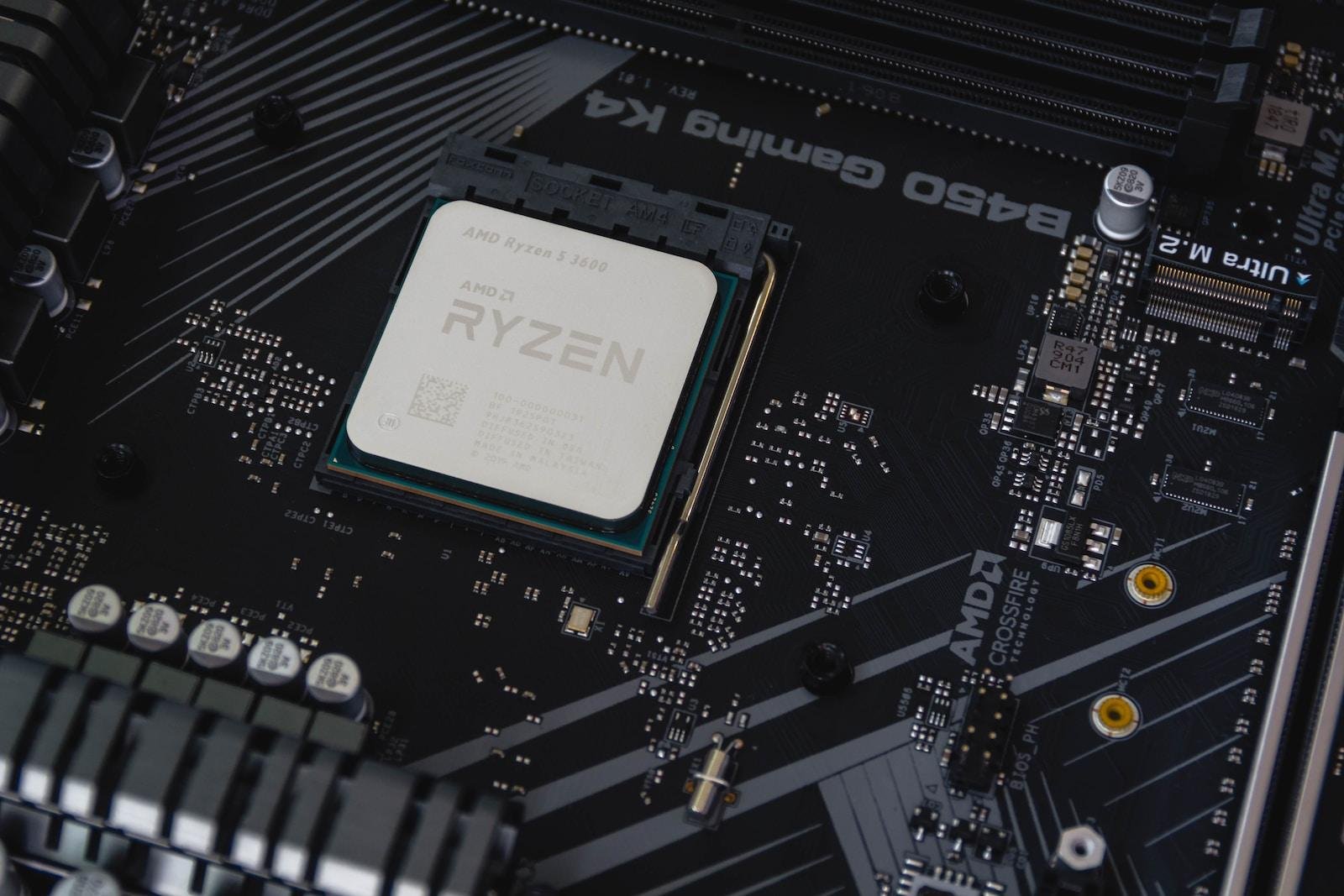In the world of technology, two of the most exciting frontiers are artificial intelligence (AI) and quantum computing. AI has dramatically changed the way we use technology, enabling machines to perform tasks once exclusive to humans. Quantum computing, on the other hand, is poised to revolutionize computation itself, thanks to the peculiar properties of quantum mechanics. But can these two cutting-edge fields be combined? Can AI effectively run on quantum computing? In this article, we’ll delve into the world of AI and quantum computing, examining their individual strengths and limitations while assessing the feasibility of their integration.
Understanding Artificial Intelligence
Artificial intelligence, or AI, is a field of computer science focused on creating systems and algorithms capable of performing tasks typically requiring human intelligence. These tasks encompass a wide range of activities, from natural language processing and image recognition to decision-making and problem-solving.
AI and Machine Learning
At the core of AI lies machine learning, a subset that has gained immense popularity recently. Machine learning algorithms enable computers to learn from data, recognize patterns, and make predictions or decisions without explicit programming for each task. This is made possible through neural networks, inspired by the human brain’s structure.
The advent of deep learning, a subfield of machine learning, has enabled AI systems to excel in tasks such as image and speech recognition, natural language understanding, and even playing complex games like chess and Go. These achievements have led to AI’s integration into various industries, from healthcare to finance, ushering in significant advancements in automation and efficiency.
AI’s Computational Demands
Despite its impressive progress, AI comes with a significant computational cost. Training deep learning models often necessitates vast amounts of data and computational resources. For example, training a state-of-the-art language model like GPT-3 can take thousands of hours on powerful hardware clusters equipped with graphics processing units (GPUs). These computational demands raise concerns about scalability and energy efficiency, which is where quantum computing enters the picture.
Unraveling Quantum Computing
Quantum computing is not merely an evolution of classical computing; it represents a paradigm shift. Classical computers process information in bits, which can represent either a 0 or a 1. In contrast, quantum computers use qubits, which can exist in multiple states simultaneously due to the principles of superposition and entanglement in quantum mechanics.
Superposition and Entanglement
Superposition allows qubits to be in a combination of 0 and 1 states, exponentially increasing the processing power of a quantum computer as more qubits are added. Entanglement, on the other hand, creates a unique correlation between qubits, even when they are separated by vast distances. This property enables quantum computers to perform certain calculations much faster than classical computers.
Quantum Advantage
The true potential of quantum computing lies in its ability to solve complex problems that are practically insurmountable for classical computers. These include simulating quantum systems, optimizing supply chains, and factoring large numbers (crucial for cryptography). Quantum supremacy, a term introduced by Google in 2019, refers to the point at which a quantum computer can perform a task that is provably impossible for classical computers to complete within a reasonable timeframe. It’s important to note that quantum computing is still in its early stages and faces numerous challenges on the path to practicality.
The Intersection of AI and Quantum Computing
Now that we have a firm grasp of both AI and quantum computing, let’s explore the intersection of these two cutting-edge fields. Can quantum computing accelerate AI tasks, or is this integration a distant possibility? To answer these questions, we need to consider the advantages and challenges presented by quantum computing when applied to AI.
Quantum Speedup for AI Tasks
One of the most promising aspects of combining quantum computing with AI is the potential for quantum speedup. Quantum computers have demonstrated the ability to accelerate specific AI-related tasks, such as training machine learning models and optimizing complex algorithms.
Quantum Machine Learning (QML)
Quantum machine learning (QML) is a subfield that investigates how quantum algorithms can outperform classical counterparts in various AI applications. One notable quantum algorithm is Grover’s algorithm, capable of searching an unsorted database quadratically faster than classical algorithms. While this may not seem directly tied to AI, it has applications in data retrieval, a critical component of many AI systems. Another quantum algorithm with AI implications is the quantum support vector machine (QSVM), which can efficiently solve certain classification problems.
Challenges and Limitations
While the potential for quantum acceleration in AI tasks is exciting, it’s essential to acknowledge the current challenges and limitations.
Quantum Hardware Constraints
Building and maintaining quantum computers is a daunting task. Quantum bits, or qubits, are highly sensitive to their environment and prone to errors due to a phenomenon known as quantum decoherence. Ensuring stable qubits and implementing error correction mechanisms are significant challenges in quantum hardware development.
Scalability Issues
Scalability is a crucial concern. Quantum computers have demonstrated quantum supremacy in specific tasks, but scaling up the number of qubits while maintaining low error rates remains an ongoing challenge. AI models, particularly in deep learning, can be massive and demand significant computational resources, which current quantum computers are unable to provide.
Algorithm Development
Developing quantum algorithms for AI tasks is a complex process that demands expertise in both quantum computing and AI. The quantum programming languages and tools needed for this endeavor are still evolving, limiting the accessibility of quantum computing to AI researchers.
Use Cases for Quantum-Accelerated AI
Despite the challenges, there are compelling use cases where the integration of quantum computing and AI could be transformative.
Drug Discovery and Material Science
One area where quantum-accelerated AI could excel is in drug discovery and material science. Simulating complex molecular structures and predicting their behavior is a computationally intensive task. Quantum computers could significantly expedite this process, potentially leading to the discovery of new drugs and materials with revolutionary properties.
Optimization Problems
AI frequently deals with optimization problems, such as finding the best route for delivery trucks or optimizing supply chain logistics. Quantum computing’s ability to handle combinatorial optimization problems could revolutionize these industries by finding more efficient solutions in significantly less time.
Enhanced AI Training
Accelerating the training of deep learning models is another promising application. Quantum computers could potentially reduce the time required to train large AI models, making it more feasible for researchers and organizations to experiment with cutting-edge AI applications.
The Road Ahead: Challenges and Possibilities
As we stand at the intersection of AI and quantum computing, it’s clear that the road ahead is filled with both challenges and possibilities. The dream of quantum-accelerated AI is tantalizing, but it’s essential to temper our expectations with a dose of reality.
Quantum-Ready AI
One way to bridge the gap between current AI technologies and the potential of quantum computing is to develop quantum-ready AI. This involves creating AI algorithms and models that can work efficiently with quantum hardware, even if fully quantum AI systems are not yet a reality.
Quantum-Inspired Algorithms
Quantum-inspired algorithms are classical algorithms inspired by quantum principles. While they don’t run on true quantum hardware, they aim to mimic quantum processes to some extent, potentially offering advantages over purely classical algorithms.
Hybrid Quantum-Classical Models
Hybrid quantum-classical models combine quantum computing with classical computing to perform AI tasks. This hybrid approach leverages the strengths of both quantum and classical systems to achieve enhanced performance.
For instance, quantum computers can be employed to speed up specific subtasks within an AI pipeline, such as feature selection or optimization. This allows organizations to benefit from quantum acceleration without the need for fully quantum AI systems, which may still be some years away from practical implementation.
Quantum-Enhanced Data Analysis
Data analysis is at the core of AI, and quantum computing can provide a significant boost in this domain. Quantum algorithms like quantum principal component analysis (PCA) and quantum singular value decomposition (SVD) have the potential to process and analyze large datasets more efficiently than classical counterparts. This could lead to faster insights and more accurate AI models.
Quantum-Safe Cryptography for AI Security
As quantum computing progresses, it poses a significant threat to classical cryptographic systems. Quantum computers are expected to break commonly used encryption methods, which could compromise data security for AI applications. Quantum-safe cryptography is an essential consideration for the future of AI, ensuring that sensitive data remains secure even in a quantum-powered world.
Collaboration and Research
Advancing quantum-ready AI and the eventual integration of quantum computing into AI workflows require collaboration between researchers, AI practitioners, and quantum physicists. This interdisciplinary approach is vital to address the challenges and unlock the full potential of quantum-accelerated AI.
Research Initiatives
Numerous research initiatives are already underway to explore the possibilities of quantum-accelerated AI. Major technology companies, research institutions, and startups are investing in quantum computing and its applications in AI. These initiatives aim to develop quantum algorithms, quantum hardware, and hybrid systems that can bring quantum benefits to AI tasks.
Quantum Education and Training
To foster collaboration between the AI and quantum communities, educational programs and training initiatives are essential. Quantum computing is a specialized field, and AI researchers and developers may need to acquire quantum knowledge to effectively leverage quantum resources in their work.
Conclusion: A Quantum Future for AI?
The question of whether AI can run on quantum computing has evolved from speculation to a tangible field of research and innovation. While we are not yet at the stage of seamlessly running AI on quantum computers for everyday tasks, the potential is undeniable.
Quantum-ready AI, quantum-inspired algorithms, and hybrid quantum-classical models represent practical steps toward harnessing the power of quantum computing in AI. These approaches can offer performance improvements and address specific AI challenges, particularly in optimization, data analysis, and cryptography.
As quantum computing technology matures and becomes more accessible, the integration of quantum acceleration into AI workflows will likely become more prevalent. It’s crucial to monitor the progress in both fields and stay informed about breakthroughs and developments.
In conclusion, the convergence of AI and quantum computing holds immense promise. While we’re not there yet, the journey to realizing the full potential of AI on quantum hardware is underway, driven by the collaborative efforts of researchers and innovators across the globe. The future of AI may indeed be quantum, offering unprecedented capabilities and opportunities for advancement in artificial intelligence.







